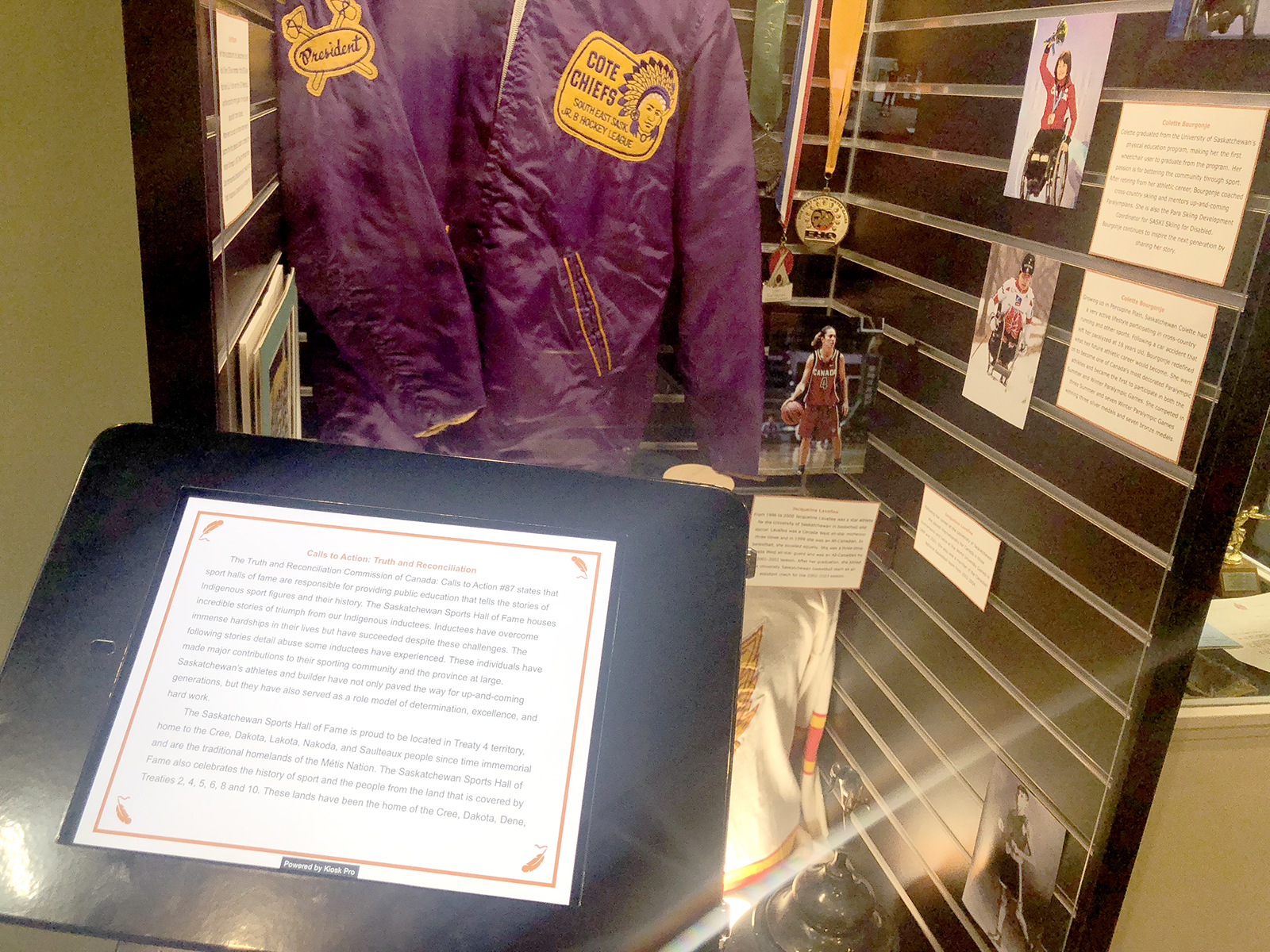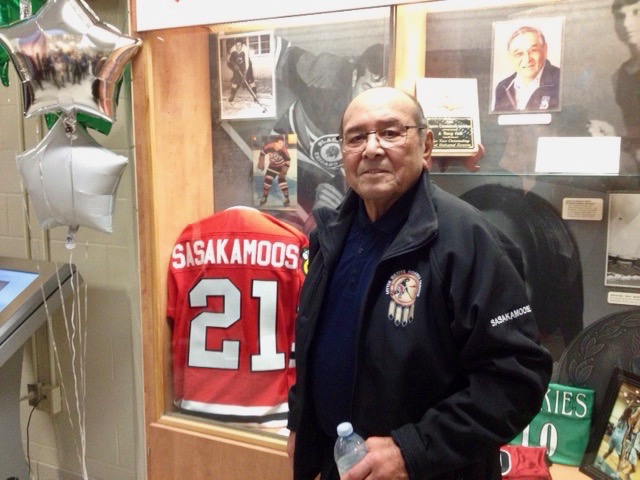The National Day for Truth and Reconciliation on September 30 honours the children who never came home and the survivors of the residential school system as well as their families and communities.
The Saskatchewan Sports Hall of Fame will be closed on the National Day for Truth and Reconciliation as we pause to reflect on the impact and enduring legacy of the residential school system in Canada as we commit to moving toward reconciliation.
The commemoration of the history and ongoing impact of the residential school system is an important part of the reconciliation process. The National Day for Truth and Reconciliation was established in response to Call to Action 80 of the Truth and Reconciliation Commission of Canada which called for a federal statutory day of commemoration.
At the Saskatchewan Sports Hall of Fame, we are committed to following the Truth and Reconciliation Commission of Canada’s 87th Call to Action that calls on sports halls of fame to provide public education that tells the national story of Aboriginal athletes in history.

This year the Hall of Fame added a new exhibit called Truth and Reconciliation: Calls To Action which features artifacts and displays celebrating Saskatchewan indigenous sporting achievement. It also features a dedicated tablet that tells their stories in detail.
We continue to offer our Indigenous Legacies in Sport outreach exhibit to classrooms across the province where we share the vital role that Indigenous athletes and builders have played in Saskatchewan’s sport and cultural history.
The Saskatchewan Sports Hall of Fame also has a display case and video kiosk celebrating Saskatchewan Indigenous athletes and their achievements, which is permanent displayed in the Physical Activity Complex at the University of Saskatchewan’s College of Kinesiology in Saskatoon.
The Saskatchewan Sports Hall of Fame currently has 11 individual athletes who identify as Indigenous and have been inducted. Those athletes and builders are: Paul Acoose, Colette Bourgonje, Tony Cote, Alex Decoteau, David Greyeyes, Jacqueline Lavallee, Ray Mitsuing, Jim Neilson, Claude Petit, Fred Sasakamoose, and Bryan Trottier.
In addition to the individual Indigenous inductees, there are also Indigenous inductees who were enshrined in the Hall of Fame as members of a team.
Ray Mitsuing is part of the 2024 Induction Class that was installed on September 28th. He is the first chuckwagon driver to be inducted into the SSHF. You can learn more about his story in his induction video below.
There are several inductees in the Saskatchewan Sports Hall of Fame who were victims of the residential school system.
Fred Sasakamoose wrote vividly and candidly about his experience at the residential school in his 2021 autobiography Call Me Indian: From the Trauma of Residential School to Becoming the NHL’s First Treaty Indigenous Player. He suffered horrible abuse at the school as well as dehumanizing treatment along with the other students.
Despite all that he suffered as a child, Sasakamoose reached the National Hockey League as a 19-year-old in 1953 with the Chicago Black Hawks. In doing so, Sasakamoose became the first Indigenous person with Treaty status to play in the NHL.

Fred Sasakamoose at the opening of the SSHF’s Indigenous sport exhibit at the University of Saskatchewan.
David Stobbe/StobbePhoto.ca
Kenneth Moore, from the Peepeekisis Cree Nation, was inducted into the SSHF as a member of the 1930 Regina Pats hockey team that won the Memorial Cup. Moore is also the first Indigenous athlete to win an Olympic gold medal.
Moore was the third of eight siblings. His two older brothers had been taken to the Brandon Indian Residential School in Manitoba – more than 300 kilometres away. They both died after being sent to the residential school. Kenneth would have been forced to attend the school when he turned seven. Instead, the Moore family fled the Peepeekisis First Nation in the middle of the night.
These stories from two of our inductees are just a small example of the countless ways the residential school system has impacted the Indigenous population.
The Saskatchewan Sports Hall of Fame is proud to be physically located in Treaty 4 territory, which is home to the Cree, Dakota, Lakota, Nakota, and Saulteaux people since time immemorial and are the traditional homelands of the Métis Nation. The Saskatchewan Sports Hall of Fame also celebrates the history of sport and the people from the land that is covered by Treaties 2, 4, 5, 6, 8, and 10. These lands have been the home of the Cree, Dakota, Dene, Lakota, Nakota, and Saulteaux people since time immemorial and are the traditional homelands of the Métis Nation.
Our nomination process is open to the public and if you believe you know of an athlete, builder or team that deserves inclusion in the Hall of Fame we invite you to nominate them. You can learn more about that process here.